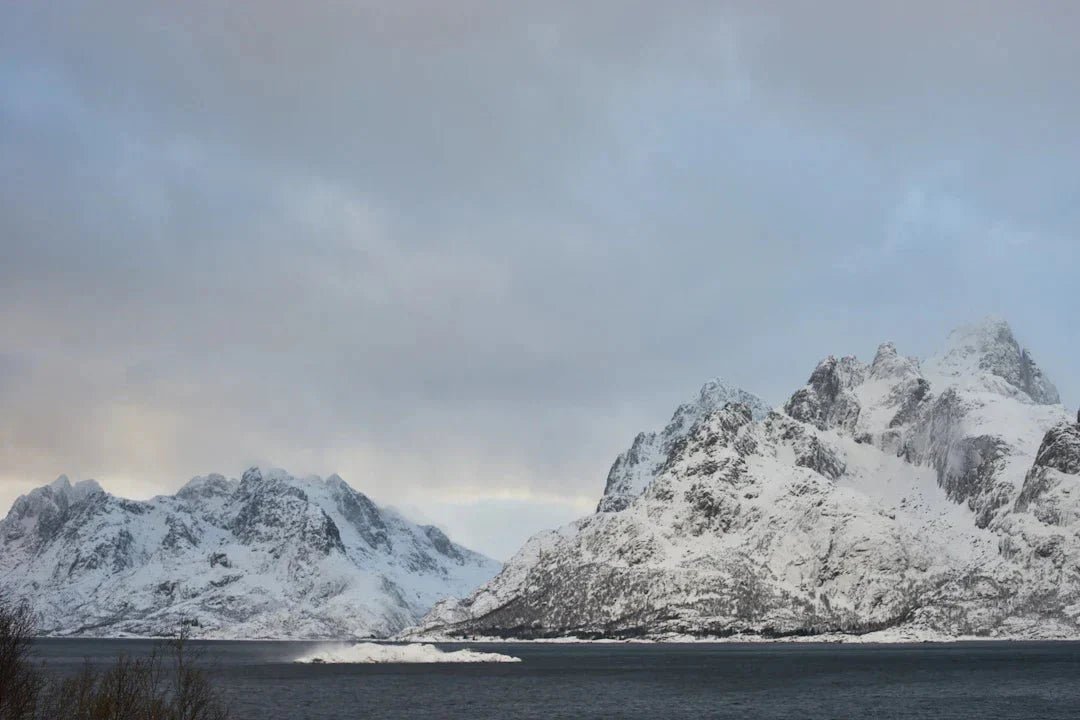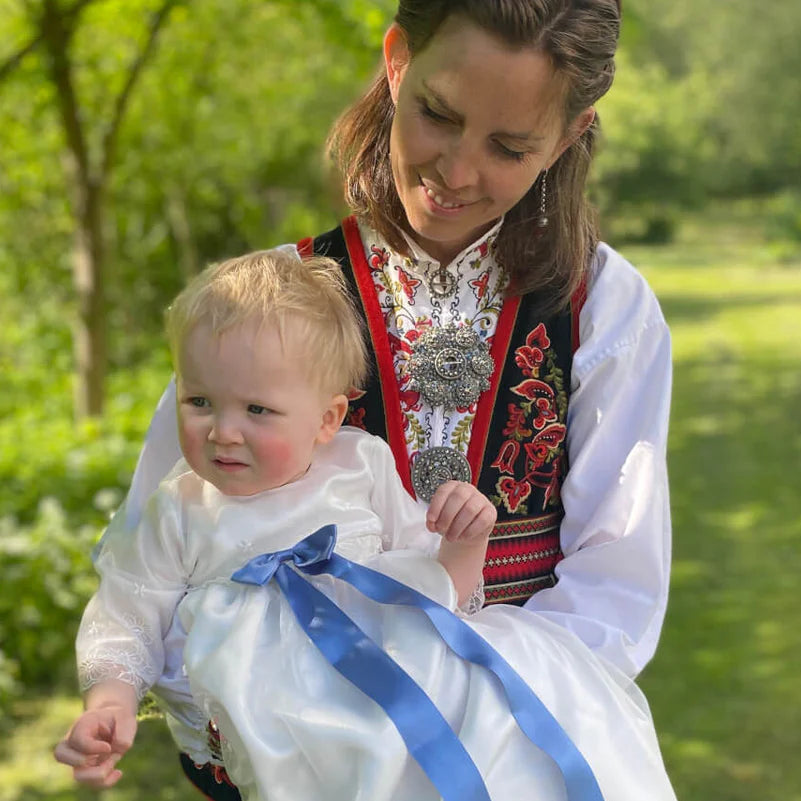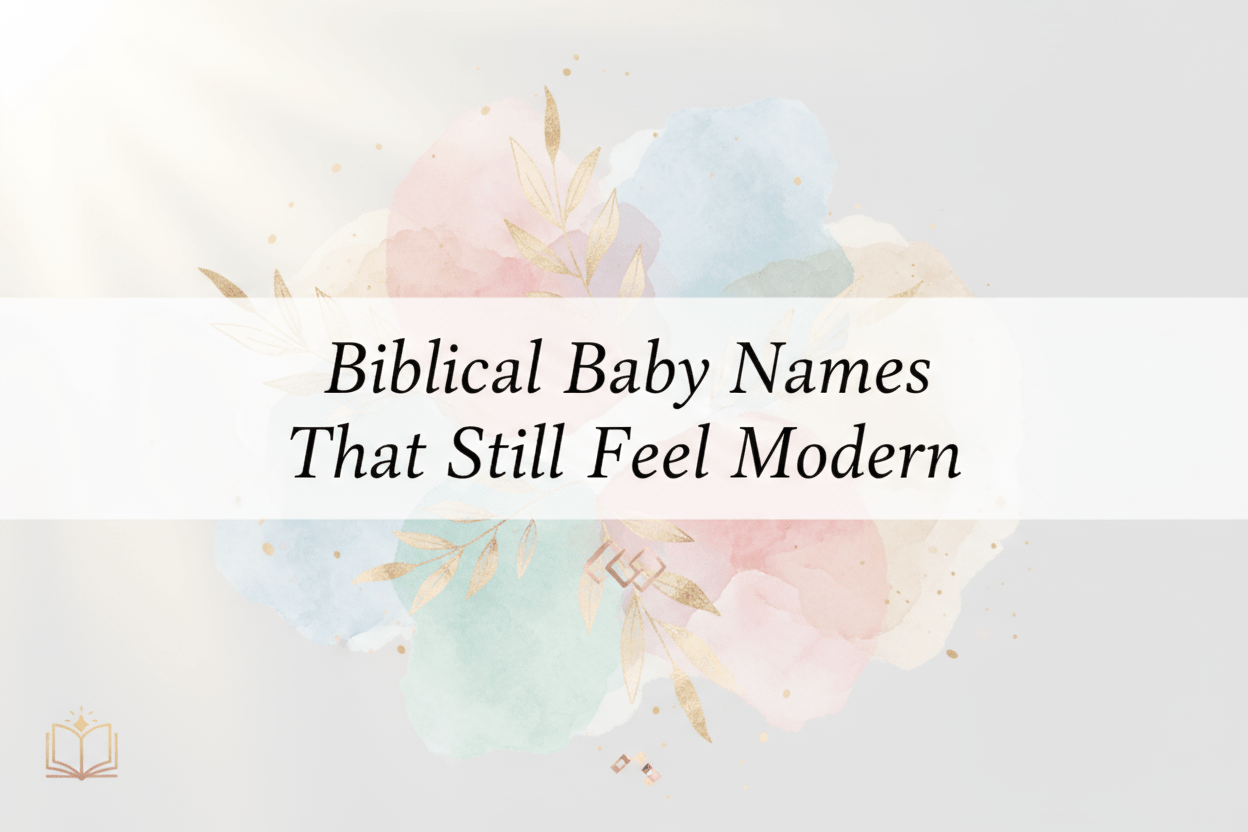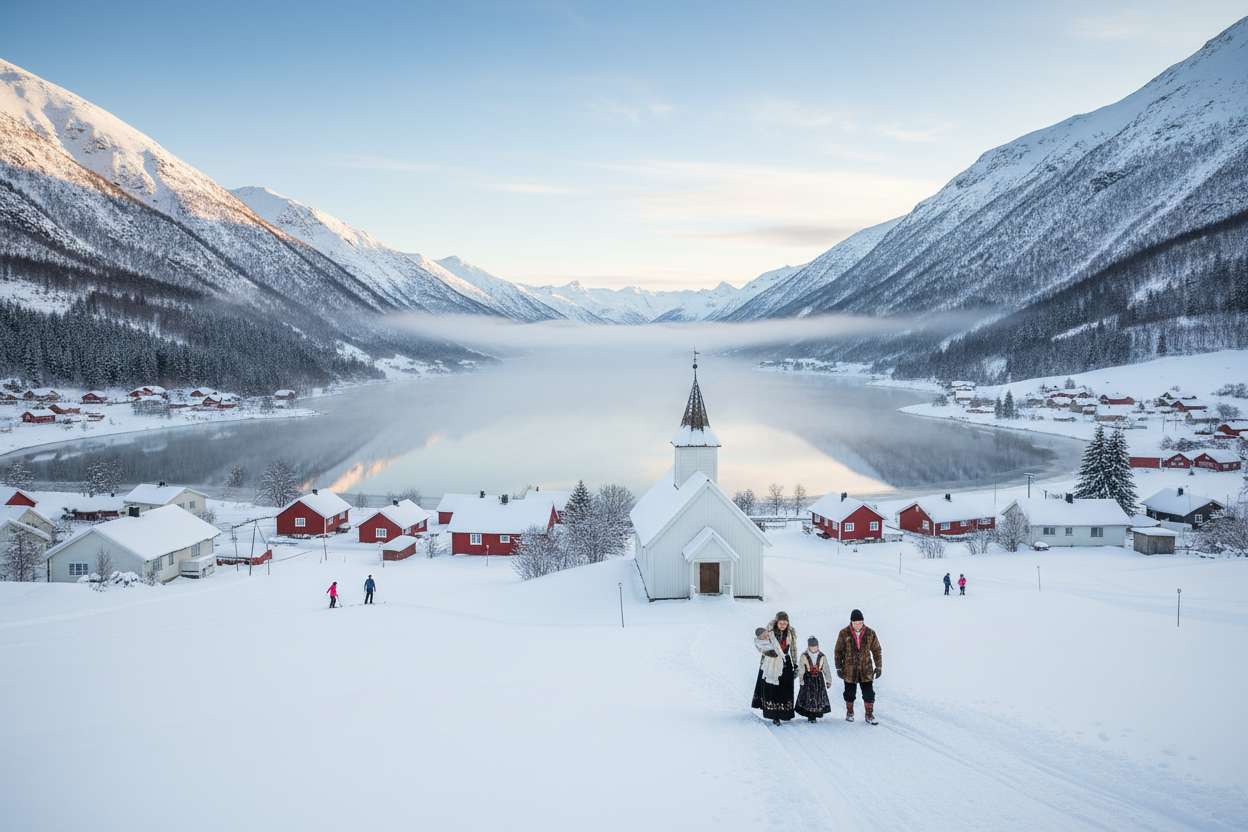
À la découverte des origines des prénoms nordiques pour bébés
Aperçu
Explorer les prénoms nordiques offre un voyage riche à travers l'histoire, la culture et la mythologie, reflétant l'héritage des pays scandinaves. Influencés par les traditions vikings et la mythologie nordique, ces noms mettent en avant des vertus et des liens avec la nature. Avec des interprétations modernes et un regain d'intérêt pour les noms traditionnels, les parents du monde entier sont attirés par leurs significations uniques. Choisir un prénom nordique honore non seulement l'identité culturelle, mais façonne aussi l'héritage et le récit personnel de l'enfant.
Questions fréquemment posées
1. Que sont les prénoms nordiques ?
2. Comment la culture viking a-t-elle influencé les noms nordiques ?
3. Quel rôle joue la mythologie nordique dans les prénoms nordiques ?
4. Comment les pratiques de dénomination nordiques ont-elles changé au fil du temps ?
5. Que doivent prendre en compte les parents lors du choix d'un prénom nordique ?
Si vous aimez l'histoire, la culture et l'originalité, explorer les prénoms nordiques est un voyage passionnant. Les noms nordiques possèdent un riche héritage qui reflète les légendes, la nature et les valeurs des pays scandinaves. Des fjords de Norvège au soleil de minuit en Suède, ces noms incarnent une multitude d'histoires, de traditions et d'identités. Plongeons dans le monde captivant des prénoms nordiques et de leur histoire.
Les origines des noms nordiques
L'Europe du Nord, comprenant des pays tels que la Norvège, la Suède, le Danemark, la Finlande et l'Islande, est souvent appelée la région nordique. Les noms originaires de cette région sont empreints d'histoire, remontant souvent à l'époque des Vikings. Explorer l'étymologie de ces noms offre une fenêtre sur les croyances, les cultures et la vie quotidienne des générations passées.
Influence viking
Les Vikings, guerriers féroces et voyageurs, ont joué un rôle important dans la formation de la culture nordique. Leur influence s'étend également aux conventions de nomination. Les noms vikings étaient souvent dérivés de l'ancien norrois, la langue des peuples nordiques. Beaucoup de noms contenaient des éléments reflétant des vertus héroïques ou des liens avec la nature. Par exemple, des noms comme Bjorn, qui signifie « ours », symbolisent la force, tandis qu'Astrid, signifiant « force divine », évoque la noblesse et le courage admirés par les Vikings.
Connexions mythologiques
La mythologie nordique influence fortement de nombreux prénoms nordiques. Les noms issus de divers dieux et déesses étaient couramment utilisés, reliant les enfants à des traits divins censés leur conférer chance ou protection. Des noms comme Freya, déesse de l'amour, et Loki, dieu farceur, offrent aux enfants un lien avec les récits de la création, des dieux et du combat entre le bien et le mal.
La transition au fil des siècles
L'évolution des noms nordiques ne s'est pas arrêtée à l'époque des Vikings. À mesure que les sociétés se transformaient, les pratiques de nomination évoluaient également. L'introduction du christianisme dans la région nordique a influencé de nombreux noms, conduisant à un mélange de noms traditionnels nordiques et de noms chrétiens. Cela a donné naissance à des noms uniques portant des significations doubles, enracinées à la fois dans les récits nordiques et chrétiens.
Évolution des tendances en matière de noms
Au fil des siècles, les noms ont évolué pour refléter les changements sociétaux. Aux XIXe et XXe siècles, un regain d'intérêt pour les noms traditionnels a conduit à une renaissance des anciens noms nordiques. Les parents recherchaient des noms qui reliaient leurs enfants à leur héritage, ce qui a entraîné un essor de noms tels que Sigrid et Henrik, soulignant un sentiment d'appartenance à une riche lignée culturelle.
La structure des prénoms nordiques
Les traditions de nomination nordiques présentent également des structures distinctives. De nombreux prénoms nordiques utilisent un système patronymique, où le nom de famille de l'enfant est dérivé du prénom d'un parent. Par exemple, en Islande, le suffixe « -son » signifie « fils de » tandis que « -dottir » signifie « fille de ». Cela crée des noms comme Jonsdottir (fille de Jon) ou Sigurdsson (fils de Sigurd), reliant ainsi les générations.
Interprétations modernes
La beauté des prénoms nordiques réside non seulement dans leur histoire, mais aussi dans leurs interprétations modernes. Aujourd'hui, de nombreux parents, quelle que soit leur origine, sont attirés par l'élégance et l'unicité des prénoms nordiques. Ils recherchent souvent des prénoms portant des significations reflétant des vertus telles que la force, le courage et la sagesse, qui sont universellement admirées à travers les cultures.
Prénoms nordiques populaires pour bébés
Comme pour toute tendance de prénoms, certains prénoms surpassent d'autres en popularité. Voici un aperçu de quelques prénoms nordiques très appréciés et actuellement en vogue :
- Emma : Signifiant « universelle », ce prénom trouve ses racines dans le vieux norrois et est apprécié à travers le monde.
- Liam : Dérivé du prénom William, signifiant « casque de volonté », Liam a conquis de nombreux pays.
- Ida : Signifiant « industrieuse », ce prénom a résisté à l'épreuve du temps et reste populaire dans les pays nordiques.
- Magnus : Signifiant « grand », ce prénom est associé aux rois et à la noblesse.
- Freya : L'incarnation de l'amour et de la beauté, Freya continue de captiver les cœurs aujourd'hui.
Embrasser votre héritage
Choisir un prénom nordique pour un bébé ne consiste pas seulement à sélectionner un titre pour un enfant ; c’est embrasser une riche histoire et un héritage culturel. Les parents trouvent du sens dans des prénoms qui résonnent avec leur identité, tout en transmettant des histoires et des traditions qui relient les générations. Un prénom détient un pouvoir — il façonne la manière dont les individus se perçoivent et souhaitent être perçus dans le monde.
La cérémonie de nomination
Pour de nombreuses familles, l'acte de nommer est célébré par une cérémonie qui scelle la signification du prénom au sein de la structure familiale. Ces cérémonies explorent souvent la signification du prénom, l'histoire qui y est associée, ainsi que les valeurs que la famille souhaite transmettre à l'enfant. Cet aspect renforce le lien entre l'enfant et son identité culturelle.
L'avenir des prénoms nordiques
L'avenir des prénoms nordiques s'annonce prometteur, car l'interconnexion mondiale incite les gens à expérimenter des prénoms issus de différentes cultures. Alors que les parents modernes continuent de rechercher des prénoms qui résonnent à la fois avec leur héritage et leur identité personnelle, nous pourrions voir émerger des combinaisons encore plus uniques.
Influence mondiale et adaptations
La montée de la mondialisation signifie que les prénoms nordiques ne se limitent plus aux seuls pays nordiques. Avec l'avènement des réseaux sociaux et la tendance croissante aux prénoms uniques, de nombreux parents à travers le monde adoptent des prénoms nordiques, les adaptant souvent légèrement pour correspondre à leurs préférences linguistiques.
Votre voyage du prénom
Alors que vous entreprenez votre quête pour trouver le prénom parfait pour votre enfant, considérez la connexion profonde qu’un prénom peut initier. Que vous soyez attiré par la simplicité de prénoms comme Liv ou la force de prénoms comme Thor, un monde entier d’histoire, de mythologie et de culture attend d’être découvert dans les prénoms nordiques.
Trouver le prénom idéal pour votre enfant
Lors du choix d’un prénom, engagez-vous dans une exploration approfondie des significations et des contextes historiques qui rendent chaque prénom spécial. Réfléchissez aux vertus que vous espérez transmettre à votre enfant et à la manière dont cela s’aligne avec les prénoms qui vous attirent. Que vous choisissiez un prénom ancré dans l’histoire viking ou un prénom qui célèbre la beauté naturelle, le bon prénom peut résonner toute une vie.
Inspiration des prénoms tirée de la nature
La nature joue souvent un rôle important dans le choix des prénoms nordiques. Inspirés par des paysages à couper le souffle, des éléments tels que les rivières, les montagnes et les animaux contribuent à l’unicité des prénoms. Par exemple, le prénom Elin, qui signifie « lumière » en vieux norrois, évoque des images de levers de soleil scandinaves sereins.
Prénoms avec des liens naturels
- Lyra : Signifiant « lyre », ce prénom relie à la fois la musique et les cieux étoilés.
- Thor : Nommé d’après le dieu du tonnerre, il représente la force et le pouvoir.
- Vida : Signifiant « vie », ce prénom reflète la vitalité et la connexion au monde naturel.
- Soleil : Bien que français, ce prénom signifie « soleil » et est souvent adopté dans les cultures nordiques comme une représentation de la chaleur et de la lumière.
Façonner une identité unique
Dans un monde de plus en plus multiculturel, le choix d’un prénom pour bébé est une occasion de créer une identité unique pour votre enfant. Prendre en compte la signification historique et l’individualité des prénoms nordiques peut aider à accélérer ce processus créatif. Lorsque les parents choisissent un prénom, ils peuvent lui insuffler une signification personnelle, le reliant à l’héritage familial et au récit plus large de leur culture.
L’héritage des prénoms
Qu’ils soient inspirés par des légendes anciennes ou une esthétique moderne, les prénoms portent des héritages qui durent des générations. Ils façonnent la manière dont les individus s’identifient à leurs origines culturelles, influençant leur perception de l’identité et du patrimoine. En choisissant un prénom pour le plus récent membre de votre famille, souvenez-vous que chaque choix a le pouvoir de célébrer l’histoire, la culture et l’individualité.
Votre partenaire dans le choix du prénom
Chez Oli Prik, nous croyons en la célébration de la beauté des prénoms et des histoires qu’ils portent. Nous sommes ravis de vous aider à découvrir le prénom nordique parfait qui résonne avec vous. Embarquez donc dans ce voyage avec nous, et laissez la riche histoire des prénoms nordiques inspirer vos choix, apportant un sentiment d’appartenance et d’héritage pour votre enfant.
Que votre aventure dans le choix d’un prénom soit remplie de joie, de connexion et des histoires intemporelles que la culture nordique a à offrir !



















